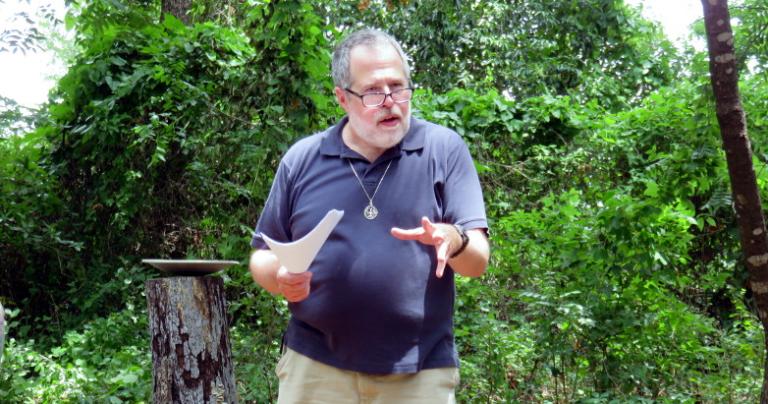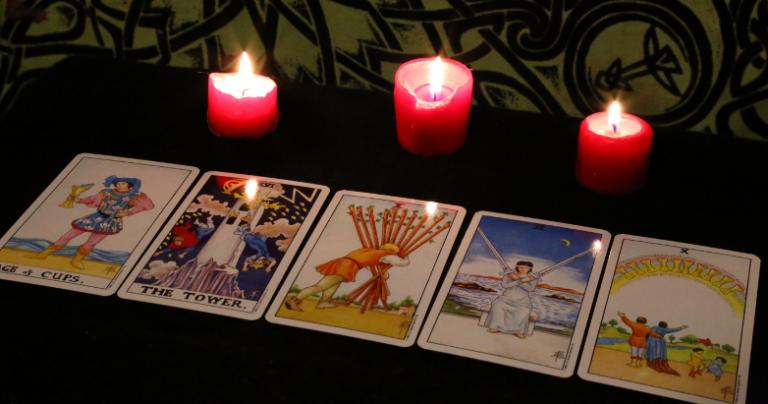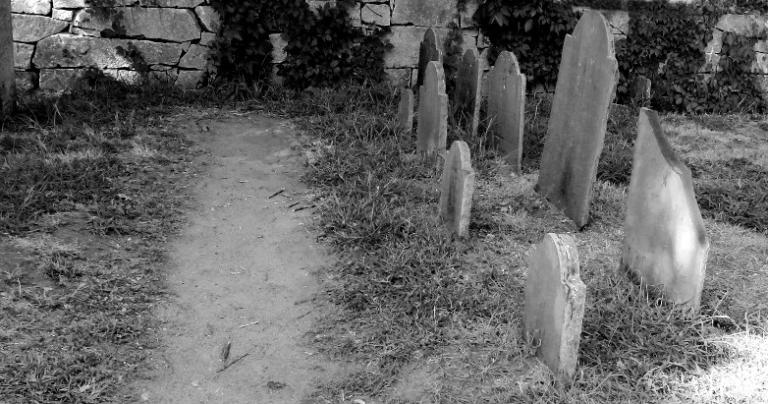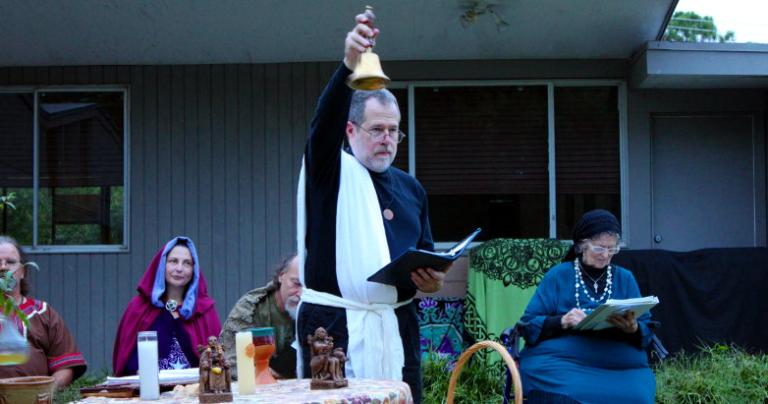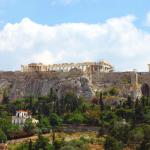Welcome to the second Conversations Under the Oaks, a monthly Q&A feature. This is your chance to ask me anything.
I’ve already responded to some questions. A few were brief enough for immediate answers. Some I’ve already answered in previous blog posts. One I’m going to turn into its own full post next week.
Questions have been edited for brevity – names are used where I have explicit permission.
Sometimes people ask me to perform divination for them. The majority of those for whom I divined were disturbed or upset by my responses to their questions. As a result, I stopped doing divination for them, and for myself. I now feel the need to begin the practice again. I don’t wish to cause any harm, but not knowing the potential impact of my response, I can’t know if I will cause harm or not. Now, if it were me on the receiving end, I would say that any emotional response I had to a reading was my own problem, but… I don’t wish to cause harm. So, is there an ethical concern here, or not?
There is always an ethical concern when divining for others. I wrote about this in 2013. The link to the American Tarot Association’s Code of Ethics is still live and I recommend it.
A divination is a complex thing. There is the message (what the spirits have to say; the situation as it actually is, the future as it will be), the medium (cards, runes, tea leaves, etc.), the messenger (the diviner), the delivery (how the diviner communicates the message to the client), and the reception (how the client hears the message). In a good divination all these elements are in alignment. If any of them are off, the message may not be accurately communicated.
Take a look at what you control in this process. The core message and the reception are out of your hands. How’s your skill with your chosen divination tool? Do you go into a divination in the proper frame of mind? At the least, that means grounding and centering, and a prayer for guidance.
How’s your delivery? Is your tone calm and reassuring, or is it strident, or anxious? Do you balance the clarity of what you see with the inherent uncertainty of divination? Does it leave room for the client to change the future by taking action in the present?
When we are divining for another person, we have a fiduciary responsibility to act in the client’s best interest. That means telling them the truth as we see it, but in a way they can handle. That’s hard to do with strangers, but it can be even harder with friends.
You don’t have to divine for others… unless you do. I’ve been given messages and told to relay them to others – most of them weren’t pleasant. So far nobody’s shot the messenger.
Blessings to you as you discern the role of divination in your public life.
What is the best way to offer service to others without too much risk of freaking them out? I speak with the dead, and have helped many people to connect with friends and relatives who have crossed over. There is, however, so much rampant flakery associated with mediumship that it’s difficult to negotiate the line between “I can help” and “I need a Thorazine drip.”
When we have a talent that can help people at difficult times, we want to use it. But as with all assistance, people have to be willing to accept it.
Many people don’t believe communication with the dead is possible and they aren’t going to listen to you no matter what. Others accept it in theory, but when it comes down to actually doing it, skepticism takes over. Or fear may interfere – if after death communication is possible, then a lot of other things may also be possible and not all of them are pleasant. If they aren’t prepared to deal with all that – particularly at a stressful time like the death of a loved one – then there’s nothing you can do to help them.
With the spiritual services I offer, I’ve found the best approach is simply to let it be known what I do, within a community that acknowledges such things. People who need and want what I do will find me. On rare occasion I’ll tell a friend “I can help you with that if you want” (that usually being divination or a magical working), but I don’t push at all. If they call, I’ll do what I can. If they don’t, that tells me they aren’t ready for it, and I respect their choices.
I wish to start a daily practice of prayer to further my spirituality, based on The Pagan Practice of Prayer. Somebody in a local coven said I could pray to deity every day, thanking them for this day of life. Is that appropriate? Without a relationship, it doesn’t seem that a pagan god/dess would be that hands-on with “giving” me a day of life?
That sounds like praying to individual Gods in the same way monotheists pray to the (supposedly) One God. I prefer to thank the deities with whom I have a relationship for the things they give me, without such gross generalities.
If you feel the need to give thanks for each day of life (and that’s not a bad thing) you could simply say “I am thankful for…” without naming anyone in particular. My noon prayers include giving thanks for my families, for my health, for safety, and for my spiritual vocation. None of these address a deity in particular. I simply say “I give thanks for…”.
When particular deities are gracious, then I thank Them by name for their specific gifts.
In addition to beginning a practice of prayer, you may find this post on Beginning a Devotional Practice to be helpful, as well as this one on Pursuing the Gods.
What is your position on religious syncretism among pagan pantheons? For example, do Artemis and Diana or Zeus and Jupiter represent distinct entities, or are they different aspects of the same deity? What about less-similar deities that still got lumped together by Greek or Roman observers such as Hermes with Thoth? Finally, what is your position on these matters with regard to Serapis, the Ptolemaic-era merger of multiple Greek and Egyptian gods use to cement Ptolemaic rule in Egypt?
That question is both very good and very difficult. I explored it last July in Is This The Same God?
It’s intuitive that the Gods are many. It’s easy to see that the Sun God and the Rain God are not the same persons, nor are Apollo and Aphrodite. It’s far less intuitive that the Gods are multiple. In ancient Greece, Zeus Olympios was understood and worshipped differently from Zeus Chthonios and Zeus Aetnaeus. Of course, in Hindu tradition, Pashupati [who the initial questioner compared to Cernunnos] is considered to be an avatar of Shiva. I’ll leave the exact meaning of that to someone with a greater knowledge of Hindu theology than me, except to say it’s another example of the multiplicity of the Gods.
Part of the attractiveness of the Many Gods is that They are approachable and relatable. Read Their stories from antiquity – They share many qualities with humans. But we must never forget They are Gods – they are more than humans. We just can’t be sure how much more. It is possible (and likely, I think) that They can exist both as distinct individuals and as syncretisms.
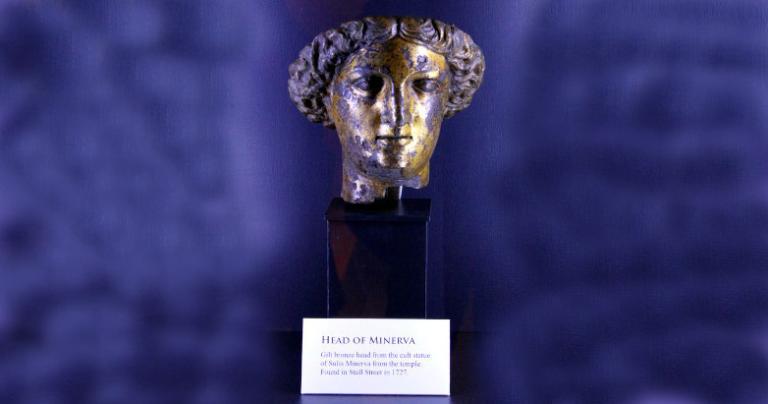
The history of Serapis is very problematic, for the reasons you list. But He was worshipped for at least 700 years. If He wasn’t a God when Ptolemy I first erected a statue to Him, He certainly was by the time Christians outlawed all pagan worship.
I’m a Druid and a priest, not a theologian – I spend far more time serving the Gods and communing with the Gods than I do thinking about the nature of the Gods. Where I have different names or different epithets, I operate on the assumption I’m dealing with different Gods.
Tommy Elf has a series of questions around ritual.
What drew you to ritual? You post many posts about aspects of ritual work, and I have had the chance to witness more than one of the gorgeous rites that you have had a hand in creating. What brought you to the perspective of being so passionate about it?
I have always loved ritual. Always.
I think part of it goes back growing up Baptist. I got “preachin’, prayin’ and singin’” in a plain white meeting house, while my Catholic cousins got the vestments and liturgy of the mass in a beautiful church. It seemed so much deeper and more spiritual.
And then there were all the books and movies that included ritual magic. Even if they were schlock horror movies where the rituals were a tabloid version of Satanism, they were still magical. If they had any authenticity to them at all, they were that much more powerful.
The scientist in me is attracted to the idea that if you do X, Y, and Z under the proper conditions you’ll get results A, B, and C. Real ritual isn’t that straightforward, but I’ve had enough success with ritual magic over the years to know it works. Good ritual isn’t just a formula – it’s embodied myth that involves and speaks to all the senses.
I have always loved ritual. And when you love something, you want to learn as much as you can about it, and figure out how to do it as well can you can. I thank you for your kind words. I take great pride in my ritual skills, and I am always trying to figure out how to make them even better.
Do you see many of the patterns of ritual in the secular, mundane world that bring status to particular events or persons, such as the example of the judge wearing black robes that Campbell mention in The Power of Myth?
Yes. Rituals don’t just make things happen, the also reinforce the way things are “supposed to be.” They ground us in our heritage and its values – for good or for ill.
Why do we sing the national anthem before sporting events or say the pledge of allegiance before school? They’re rituals that reinforce certain concepts and behaviors. Your favorite sport (baseball, for those who don’t know Tommy that well) is full of rituals, from the formal rituals of throwing out the first pitch and the seventh inning stretch to all the informal rituals that are generally considered superstition.
If anyone says they have no rituals in their life, let me propose an experiment. When planning your family’s Christmas dinner, suggest that fish and chips would be a good main course. Suggest that perhaps December 26th would be a better day to open presents. Ask a teenage girl to carve the turkey. And if all that fails, just rearrange the chairs. I guarantee you’ll find that ritual is alive and well in your family!
If you had a chance to bring ritual into a more forward position, even within our ritual-centric environment within the various Pagan Paths, where would you start?
I’d like to see more blessings, invocations, and acts of mindful contemplation. Being forced to pray before meals as a child turned me off of that practice. Now I never do it except on very special occasions, but that’s my problem – the practice is still valid and helpful. I usually begin my workshops and seminars with a brief prayer.
I’d like to see taking of omens before beginning important projects and journeys – and paying attention to them.
Mostly, though, I’d like to see more ritual acts of devotion, especially simple things like saluting the sun in the morning and/or evening, and the moon when it’s visible at night – little things that done consistently remind us of our connections to Nature, the Gods, and our ancestors.
And finally, is there a particular ritual that you look back at with fond memories of it being “just right” – and this does not have to be one that you had a hand in creating, it could be one that you were a part of. What made it that special?
I’ve never created or participated in a ritual that was “just right.” There’s always something that could be better. That said, two rituals stand out as especially memorable and pretty close to perfect.
The first was the Lughnasadh ritual at the 2010 House of Danu Gorsedd. Thorn Coyle led a workshop on ecstatic ritual, which turned into a planning session / rehearsal for the main ritual. This was not my first ecstatic experience of a deity, but it was the first time it happened within the context of a planned ritual. This was a great learning experience for me. My public rituals were already good by 2010 – this showed me how to make them even better.
The second was the Cernunnos Ritual at the 2013 OBOD East Coast Gathering. We did this ritual three times: for Denton CUUPS Lughnasadh, at the ECG, and then for the DFW Pagan Pride Day at White Rock Lake. We did an updated version for last year’s Beltane and a shorter version at the Beyond the Gates festival.
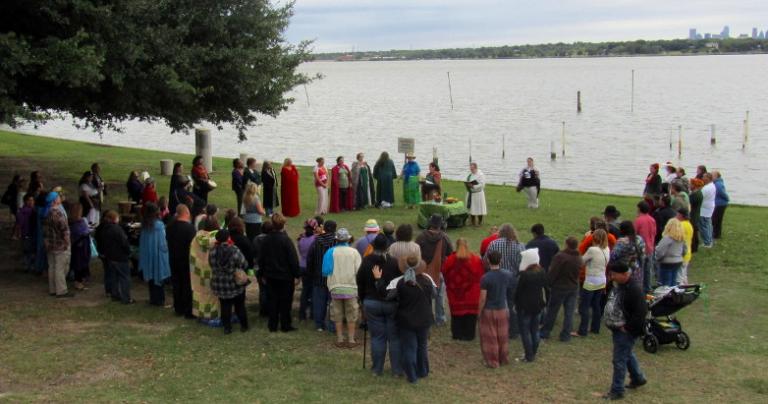
They were all good, but the ECG version stands out. It was a perfect setting: a long torch-lit procession, into the woods, moving to the call of some of the most powerful drumming I’ve ever experienced. And then the main part of the ritual began.
Cynthia and I finished our call and response and the drummers picked up the beat. As I walked around the circle everyone was still sitting, as if they weren’t quite sure what they were supposed to do.
And then the presence of Cernunnos began to grow, and grow, and grow. One person got up, and then another, and then another, and before long the inner circle was full of Druids dancing, singing and shouting around the fire.
Afterwards, someone said “this was something primal.” The call of the Forest God is strong in this era of environmental disconnection and desecration and he is best met through the heart and the gut and the loins, not through the intellect.
I sometimes wonder what ritual was like for the ancient Druids. I have some ideas – some of them may be past life memories, while others are almost certainly the product of my imagination. Regardless of where those ideas and imagery come from, that ritual is as close to them as I’ve ever been.
Thanks again for the questions – we’ll do this again next month.


